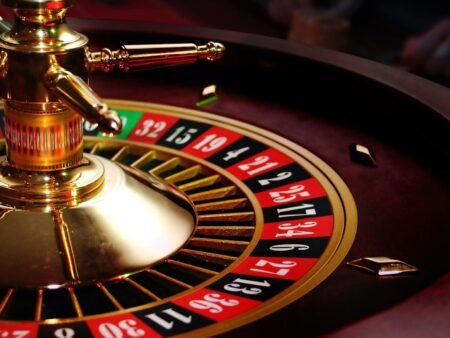Betting on the Super Bowl in the Year of the American Sports Gambler
On Tuesday afternoon, I drove to the Meadowlands of northern New Jersey and placed a couple of cathartic bets against Tom Brady. These were so-called prop bets, or proposition bets, which don’t involve the final outcome of a game. “Sucker bets,” a man named Eddie informed me. I could tell he was a serious gambler because his phone buzzed, while we were talking, with an incoming call from someone named Paulie Vegas. (“I’ll call you later, Paulie Vegas,” he said, without answering.) We were standing in front of the FanDuel Sportsbook, which opened last July, at the racetrack, a couple of months after the Supreme Court overturned portions of the Professional and Amateur Sports Protection Act. PASPA, as the law was known, had effectively given Nevada a monopoly on legal sports betting. New Jersey sued, and won. Now, without using a bookie, you can bet on the Seton Hall-St. John’s game in West Virginia or Delaware or Rhode Island—states that, like New Jersey, have passed their own sports-betting legislation. Or on the Super Bowl, which, according to the American Gaming Association, is likely to generate six billion dollars’ worth of wagering action—much of it still illegal, whether through unregulated offshore Internet sites or in the forty-two states that haven’t yet followed New Jersey’s lead. That’s nearly twice the net worth of Howard Schultz.
Eddie lives in the Bronx, but he said that he had been making a habit of commuting to the FanDuel Sportsbook seven days a week, by bus, for nine dollars, round trip, because it offered better odds than the barbershop where he used to submit his illicit picks. “I come for fun, because I’m bored,” he said, and showed me some pictures of winning tickets that he had saved on his phone, as mementos. Like any committed punter, he professed to have a winning record, though I couldn’t discern much science behind his methodology. Sometimes he lets his girlfriend pick for him. Sometimes he bets against the team that played most recently, figuring they must be tired. He bets on all sports. “I pick hockey,” he said, by way of example. “I don’t pick hockey because I played hockey. I played hockey before, just on concrete, but that was some bullshit when I was a little kid.” He’s now forty-six. He added, “You don’t always go with the favorite.”


